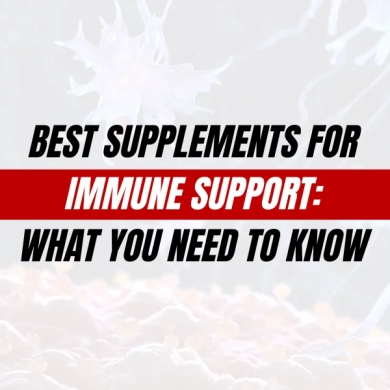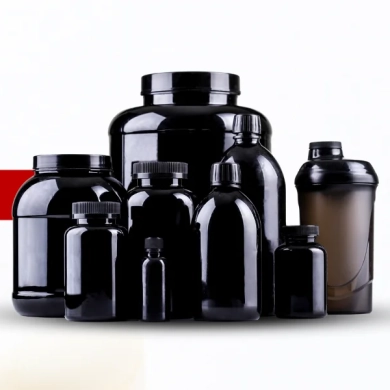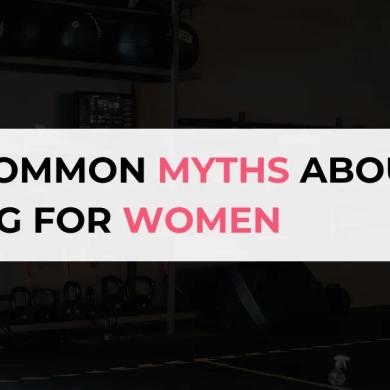Probiotics and Gut Health: How to Choose the Best Supplement for You
Introduction
We’ve all heard about how essential probiotics are for our gut health. But with so many options out there, it can be overwhelming to figure out which one is the best for you. Should you go for a capsule or a powder? Do all probiotics work the same way? In this article, we’ll dive deep into probiotics, their connection to gut health, and how you can choose the best supplement to meet your needs.
What Are Probiotics?
Definition and Origins
Probiotics are live bacteria and yeasts that are good for your health, especially your digestive system. These are the “good” or “friendly” bacteria that naturally live in your gut and keep it healthy. Probiotics can be found in certain fermented foods like yogurt, kimchi, and kombucha, as well as in dietary supplements.
How Do Probiotics Work?
Your digestive system is home to trillions of bacteria, both good and bad. Probiotics work by maintaining a balance between these bacteria, ensuring that the harmful ones don’t take over. They not only help in breaking down food but also boost your immune system and help fight off pathogens.
The Importance of Gut Health
Gut Microbiome Explained
Your gut is home to a complex community of microorganisms, known as the gut microbiome. This microbiome plays a critical role in your digestion, immune response, and even your mood. The healthier your gut is, the better your overall health will be.
Benefits of a Healthy Gut
When your gut is in good shape, it can efficiently absorb nutrients, improve digestion, and strengthen your immune defenses. A balanced gut also plays a role in reducing inflammation and can improve mental health by influencing the gut-brain axis.
Why You Might Need Probiotic Supplements
Lifestyle Factors That Disrupt Gut Health
Modern life is full of stressors that can throw your gut off balance. Poor diet, stress, and frequent use of antibiotics can all affect your gut flora negatively. Antibiotics, while necessary for fighting infections, can kill off both harmful and beneficial bacteria, leaving your gut vulnerable.
Signs You Could Benefit from a Probiotic Supplement
If you frequently experience digestive issues such as bloating, diarrhea, or constipation, or if you get sick often, you may benefit from taking a probiotic supplement. Low energy, skin issues, and even mental health problems like anxiety or depression can also be signs of an unbalanced gut.
Different Types of Probiotic Strains
Lactobacillus
This is one of the most common probiotic strains found in supplements and fermented foods. It helps in digesting lactose, the sugar found in milk, and can be beneficial for people with lactose intolerance.
Bifidobacterium
Another popular strain, Bifidobacterium, can be found in the intestines and helps with digestion, preventing infections, and supporting the immune system.
Saccharomyces Boulardii
Unlike the others, Saccharomyces boulardii is a yeast rather than bacteria. It is often used to treat diarrhea and can be effective after antibiotic use.
How to Choose the Right Probiotic Supplement
Factors to Consider
When choosing a probiotic supplement, pay attention to the CFU count (Colony Forming Units). This tells you how many live organisms are in each dose. A higher CFU count might be more effective for certain conditions, but always consider your personal health needs. The diversity of strains in the supplement is also important. Some supplements only contain one or two strains, while others offer a mix.
Identifying Your Specific Needs
Some probiotics are better for digestion, while others may support immunity or mental health. Identify what you’re looking to target, whether it’s digestive comfort, immune support, or even skin health.
The Best Time to Take Probiotics
With or Without Food?
Generally, probiotics are most effective when taken with food, especially during or just before meals. However, always read the label instructions as some probiotic strains have different requirements.
Are There Any Side Effects of Taking Probiotics?
Common Side Effects
Some people experience mild digestive discomfort, bloating, or gas in the first few days of taking probiotics. This is usually temporary as your body adjusts to the influx of good bacteria.
Who Should Avoid Probiotics?
While probiotics are generally safe, individuals with weakened immune systems or those who are seriously ill should consult their healthcare provider before taking them.
Combining Probiotics with Prebiotics
What Are Prebiotics?
Prebiotics are the food source for probiotics. They help the good bacteria in your gut thrive. Prebiotics are often found in fiber-rich foods like garlic, onions, and bananas.
Foods That Are Naturally Rich in Prebiotics
Some great sources of prebiotics include oats, apples, asparagus, and leeks. Combining these with your probiotic supplement can help enhance the benefits for your gut.
Top Probiotic Supplements on the Market
Popular and Trusted Brands
When it comes to probiotics, brands like Garden of Life, Culturelle, and Renew Life are well-regarded for their quality. These brands often offer a variety of strains and high CFU counts, making them reliable options for many users.
What to Look for in a Quality Supplement
When buying a probiotic supplement, check for third-party testing, the presence of diverse strains, and clear labeling regarding CFU count and storage instructions.
Conclusion
Choosing the right probiotic supplement doesn’t have to be daunting. By understanding how probiotics work, identifying your specific health needs, and paying attention to key factors like strain diversity and CFU count, you can find a supplement that’s perfect for you. Remember, your gut health is foundational to your overall well-being, so take the time to invest in it.
FAQs
How long does it take for probiotics to work?
It can take anywhere from a few days to a few weeks, depending on your body and the issue you’re addressing.
Can I take probiotics with other supplements?
Yes, probiotics are generally safe to take with other supplements, but it’s always a good idea to check with your healthcare provider.
What is the best probiotic for bloating?
Lactobacillus and Bifidobacterium strains are often recommended for relieving bloating.
Can children take probiotics?
Yes, children can take probiotics, but make sure to choose a product specifically designed for them.
Should I continue taking probiotics after antibiotics?
Yes, taking probiotics after antibiotics can help restore the balance of good bacteria in your gut.
To read more such health and fitness related blog, visit humangrowthhormones.com/blog-for-fitness-tips-and-advice/ and to buy highest quality supplements, visit humangrowthhormones.com and stock up your daily health supplements like Berberine Prime, Alpha Max, Cut and Ripped, etc.









Add comment